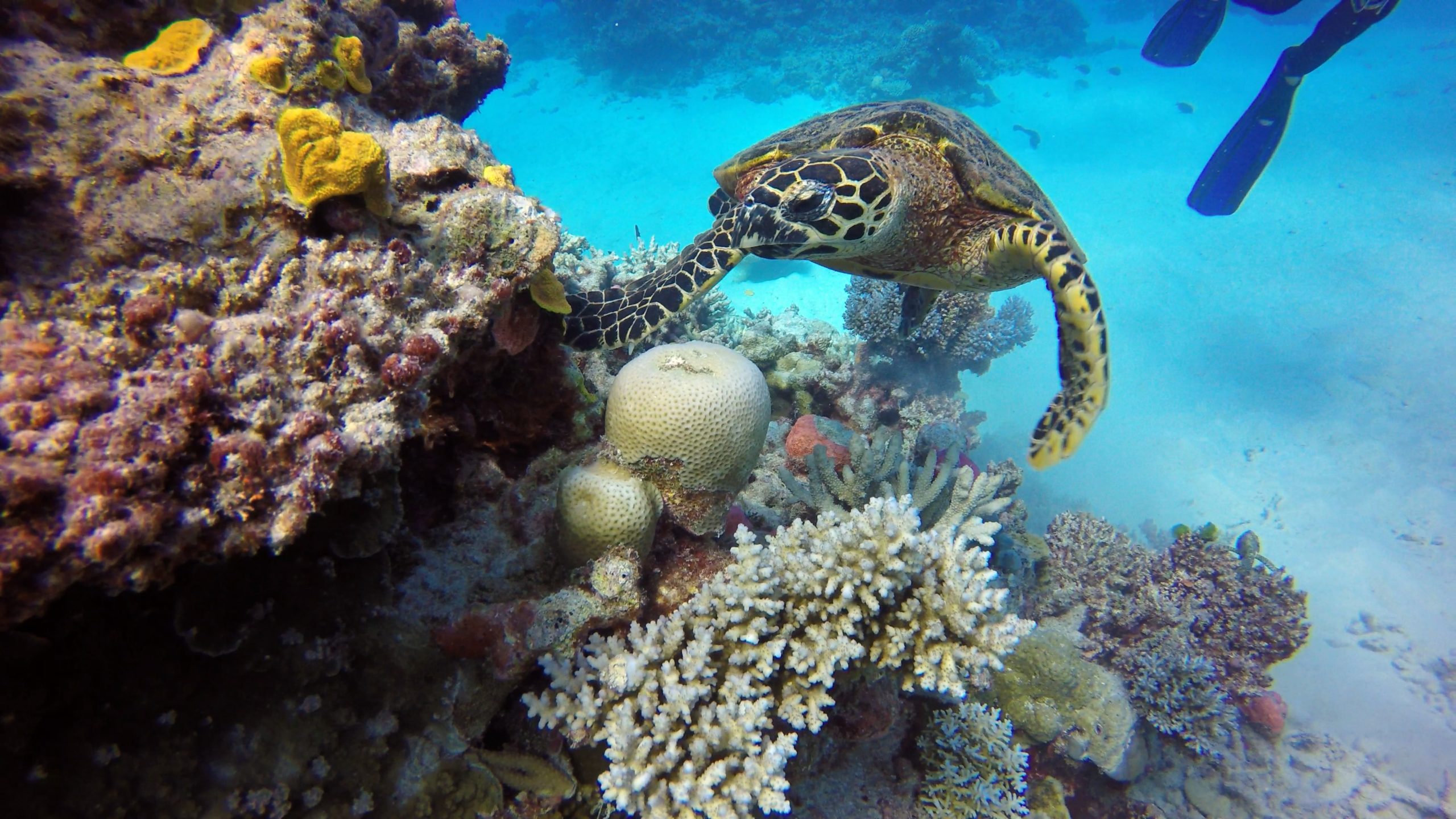Coral Reefs
Coral reefs are incredibly biodiverse habitats on which approximately 25% of all marine species depend, despite only covering less than 1% of the ocean floor. They provide food, shelter, reproduction grounds, and protection to marine animals and organisms. The corals obtain food from tiny algae that live within their tissues called zooxanthellae. These algae are highly sensitive to their environments, which is why external stress factors have caused severe damage to our oceans’ most magnificent homes.
When external pressures damage coral reefs, the most common consequence is bleaching, a phenomenon where the corals turn white as the zooxanthellae die and nourishment halts. About 14% of coral reefs worldwide were lost between 2008 and 2019, which is equivalent to more than all of Australia’s living coral. These pressures must be reduced in order to save the most biodiverse habitat in the ocean.
The most common stresses that damage corals are rising sea temperatures and increasing ocean acidity, and human activity is continuing to drive these two factors. As the seas continue to absorb the excess carbon dioxide in the air, they become more acidic, and the rising global temperatures and melting glaciers continue to heat the seas.
Additionally, overfishing has had a significant impact worldwide. The ecosystems of which coral reefs are part contain many balances. The marine life living within and around them all have different roles such as cleaning the reefs, eating away disease threats, predators maintaining the population limits, etc. Overfishing has disrupted this balance in many areas, resulting in added stress to the already struggling reefs.
Luckily, scientists have found evidence of hope as more reefs are showing signs of resiliency, and in some places remarkable recovery potential. With the correct measures, and hopefully coming restoration techniques, we can stop the damage to coral reefs and help restore them to a sustainable level yet again, increasing marine life biodiversity and stability worldwide.
Written by Zein Tynon ’24.
Photo Credits:
Sources:
https://www.noaa.gov/education/resource-collections/marine-life/coral-reef-ecosystems
https://www.theguardian.com/environment/2021/oct/05/world-coral-lost-study-shows-reef-health

